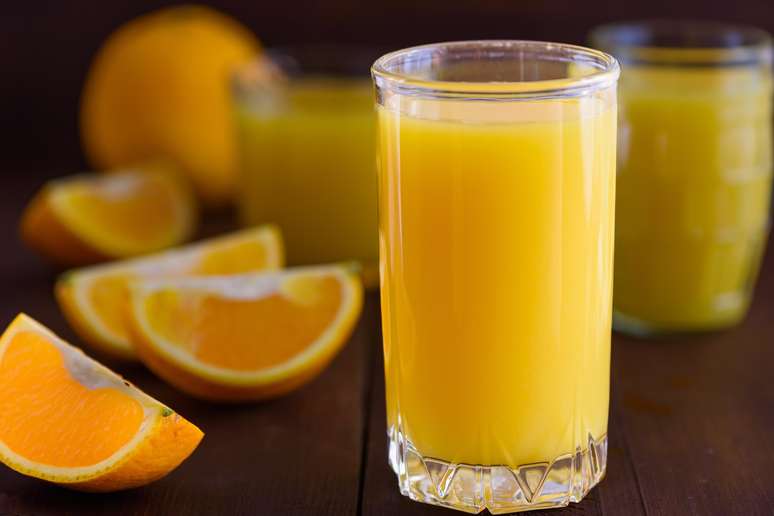Research associates daily consumption of the drink with weight gain in children and adults
According to an analysis of 42 studies, drinking a glass or more of 100% natural, unsweetened fruit juice every day is associated with weight gain in children and adults.
The research, published this week in the journal JAMA Pediatricsfound an association between consumption of 100% natural fruit juices and BMI (body mass index, which takes into account weight and height) among children and adults.
Importantly, the increases were small – among children, for example, each additional serving of drink per day was associated with a 0.03 higher BMI – but varied by age, with BMI increases greater for younger children, under 11 years old.
It is not necessary to delete it completely
Does this mean you should avoid fresh juices completely? Not necessarily, as they are a source of vitamins and help maintain the recommended daily fluid intake. But the study suggests being more aware of how much you consume, and favoring the consumption of fresh fruit. natural.
According to the authors, the findings support public health guidelines to limit consumption of 100% natural fruit juices to prevent overweight and obesity.
This also begs the question: If fruit is good for you and is recommended as part of a healthy diet, why can 100% fruit juice lead to weight gain? The authors point to “liquid calories” as a possible factor.
The juice contains little to no fiber compared to the whole form of the fruit, which results in low satiety, meaning that the juice does not make a person feel as full as eating the fruit itself.
Additionally, fiber is important for slowing the absorption of fruit sugar, preventing spikes in the blood that cause the body to produce more insulin. The recommended daily intake of fiber for a healthy adult is between 25 and 30 grams.
General recommendations
The authors also note that their findings are in line with American Academy of Pediatrics guidelines that children under age 6 should consume “less than one glass of fruit juice per day,” with a typical glass equal to an 8 oz serving. The Centers for Disease Control and Prevention (CDC) in the United States also advises children younger than 1 year to avoid juice completely.
For those who want to enjoy the taste of fruit with fewer calories, the CDC recommends adding a splash of 100% natural juice to regular or sparkling water for a “refreshing, low-calorie drink.”
Source: Terra
Ben Stock is a lifestyle journalist and author at Gossipify. He writes about topics such as health, wellness, travel, food and home decor. He provides practical advice and inspiration to improve well-being, keeps readers up to date with latest lifestyle news and trends, known for his engaging writing style, in-depth analysis and unique perspectives.









